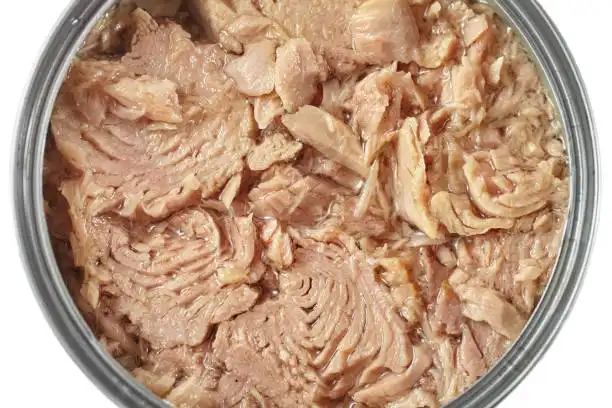If canned tuna is a staple in your pantry, it’s time to double-check your stock. Several popular brands of canned tuna have been voluntarily recalled due to a potential risk of botulism, a rare but potentially fatal form of food poisoning. Here’s everything you need to know about the recall, the affected products, and what to do if you’ve purchased or consumed them.

What’s Behind the Recall?
Tri-Union Seafoods, the company behind multiple canned tuna brands, recently announced a voluntary recall of several products. The issue stems from a manufacturing defect in the cans’ “easy-open” pull tab feature, which may compromise the product’s seal over time. This defect could allow contamination with Clostridium botulinum, the bacteria responsible for botulism.
While no illnesses have been reported to date, the recall was issued out of “an abundance of caution” after Tri-Union was notified by its supplier about the potential risk.
Which Products Are Affected?
The recall impacts several well-known brands sold in major retailers across the U.S., including Trader Joe’s, Costco, Publix, Walmart, and more. Here’s a breakdown of the affected products by brand and retailer:
Trader Joe’s Label
- Sold in stores across Delaware, Illinois, Indiana, Iowa, Kansas, Kentucky, Maryland, Michigan, Minnesota, Missouri, Nebraska, New Jersey, New York, North Carolina, Ohio, Pennsylvania, Virginia, Washington D.C., and Wisconsin.
H-E-B Label
- Available exclusively at H-E-B stores in Texas.
Genova Brand
- 7 oz. cans: Sold at Costco locations in Florida and Georgia.
- 5 oz. cans: Distributed through Harris Teeter, Publix, H-E-B, Kroger, Safeway, Walmart, and independent retailers in Alabama, Arkansas, Arizona, California, Florida, Georgia, North Carolina, New Jersey, Tennessee, and Texas.
Van Camp’s Brand
- Found at Walmart and independent stores in Pennsylvania, Florida, and New Jersey.
If you suspect you’ve purchased one of these products, check the universal product code (UPC) and best-by date on the can. Cross-reference these details with the impacted list available on the FDA’s website.
Why Is Botulism So Dangerous?
Botulism is a rare but serious illness caused by toxins produced by Clostridium botulinum bacteria. These toxins attack the nervous system and can lead to symptoms such as:
- Difficulty breathing
- Muscle weakness
- Paralysis
- Nausea or vomiting
- Abdominal pain
In severe cases, botulism can be fatal if left untreated. While it’s reassuring that no illnesses have been reported so far in connection with this recall, it’s crucial to handle any potentially affected products with care.
What Should You Do If You Have the Recalled Tuna?
If you discover that you have one of the recalled products at home:
- Do Not Consume It – Even if the tuna appears fine or doesn’t smell spoiled, it’s best to err on the side of caution. Botulism contamination isn’t always visible or detectable by smell.
- Return or Dispose of It – You can return the product to the store where it was purchased for a full refund. Alternatively, you can throw it out safely.
- Contact Tri-Union Seafoods – For additional assistance, you can reach out to the company directly for a retrieval kit and replacement coupon by emailing [email protected] or calling 833-374-0171.
What If You Already Ate the Tuna?
If you’ve consumed any of the recalled tuna products but feel fine, there’s no need to panic. However, it’s important to remain vigilant for signs of foodborne illness. Symptoms of botulism can include:
- Upset stomach
- Diarrhea
- Vomiting
- Bloody stool
- Muscle weakness or difficulty breathing (in severe cases)
Should you experience any of these symptoms — even if they seem mild — contact your doctor immediately. Early medical intervention is critical in treating botulism effectively.
Stay Safe: Prevention Tips
Food recalls like this one serve as an important reminder to always check product labels and stay informed about potential risks. Here are a few tips to protect yourself and your family:
- Stay Updated – Keep an eye on recalls by visiting websites like the FDA or subscribing to recall alerts from your favorite retailers.
- Inspect Packaging – Always examine cans for signs of damage or bulging before purchase or use; these could indicate compromised seals or contamination.
- Store Properly – Follow storage instructions on packaging to maintain product safety and quality over time.
The Bottom Line
While no illnesses have been reported so far in connection with this canned tuna recall, it’s always better to be safe than sorry when it comes to food safety. If you have any of the affected products in your home or suspect you may have consumed them, take action immediately by following the steps outlined above.
For more information on this recall and other food safety updates, visit the FDA’s website or contact Tri-Union Seafoods directly for assistance. Stay informed and stay safe!



